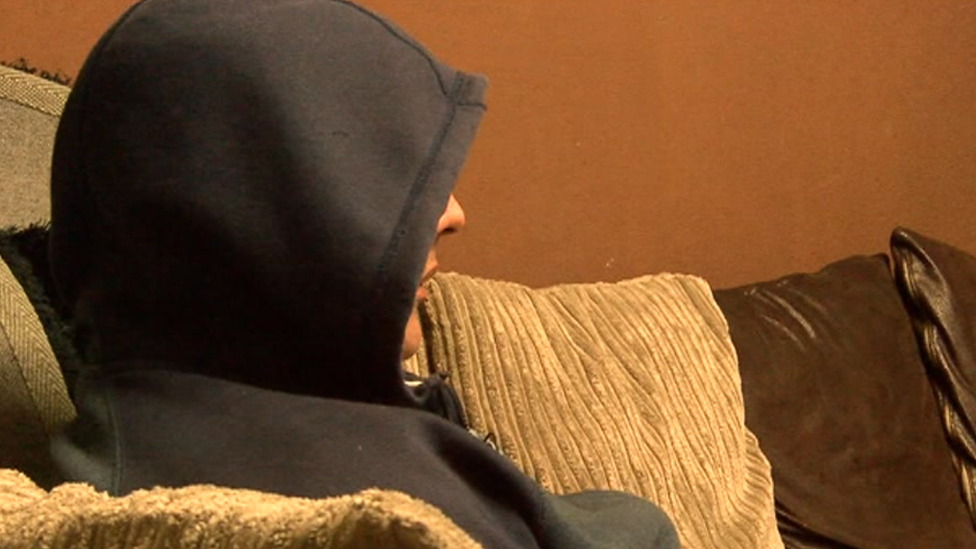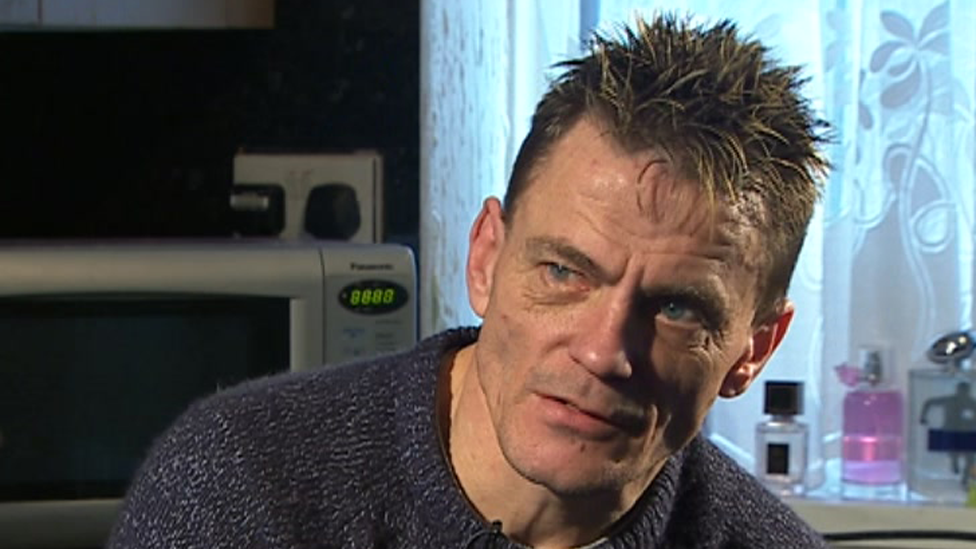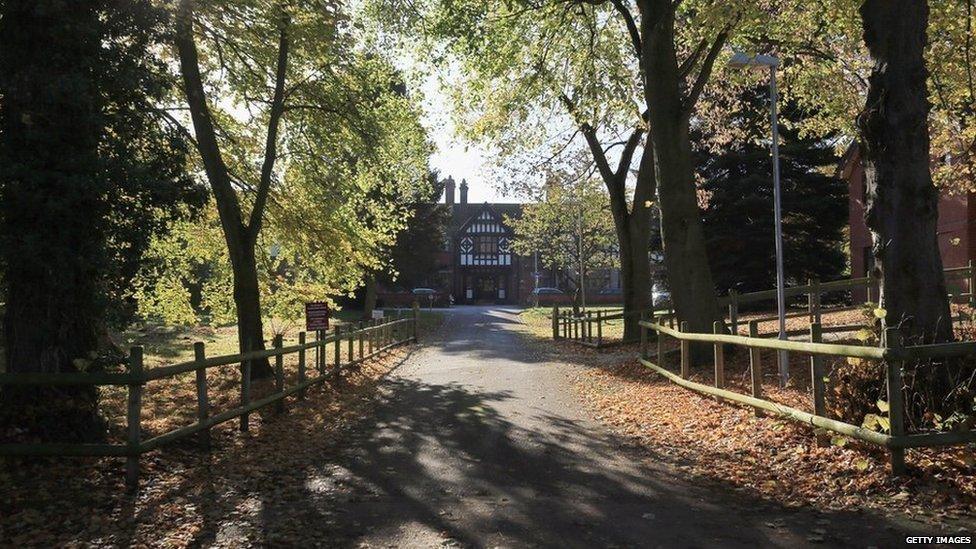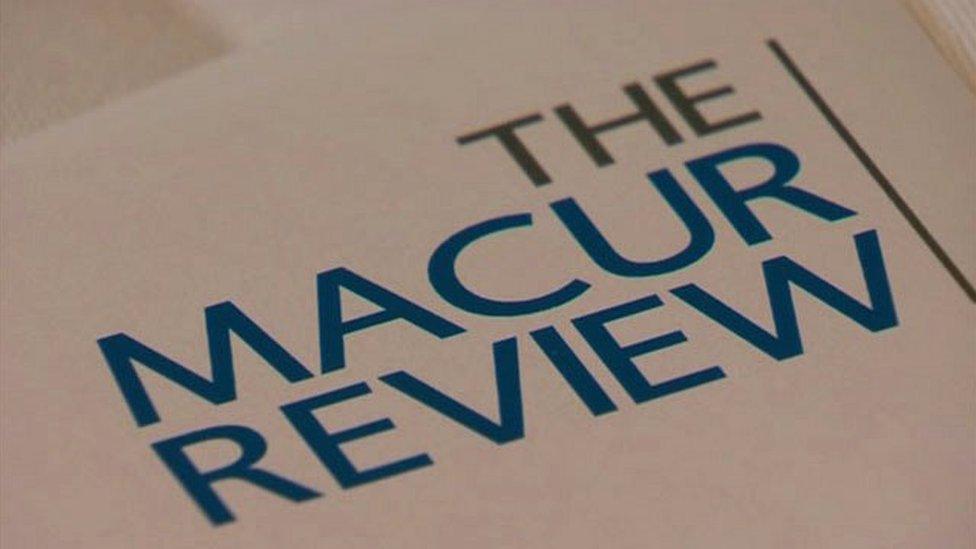North Wales child abuse scandal: Victims speak out
- Published

Bryn Alyn abuse victim: "We were sweets in a candy shop"
Just over three years ago, Lady Justice Macur was tasked with looking again at the Waterhouse inquiry into abuse at children's homes in north Wales. Today her review has finally been published.
But can it lay to rest the ghosts of a scandal more than 40 years in the making and offer some relief to the victims whose pain, fury and sense of betrayal is still very much alive?
"I can't let it go. It's like a burning flame inside me."
More than 25 years have passed since David [not his real name] was a resident at the Bryn Alyn children's home in Wrexham but his feelings of anger and hatred towards those who abused him there have never abated.
When he first arrived at the home - part of the privately-run Bryn Alyn Community - he had high hopes: "It looked and sounded like a great place to grow up in my teens, rather than be at home where there was no quality of life."
But that optimism was short-lived. Abuse, he says, was rife.
"I was sexually assaulted but there were people who were consistently sexually abused and you'd see these kids come and go. They'd be missing for three or four days and they'd come back and they'd have a brand new bike or a remote-controlled car.
"It wasn't just about sexual abuse but physical and mental abuse. We were targets. We were sweets in a candy shop for paedophiles and child abusers."
Since leaving care, David has led a troubled life, with spells in prison.
It is a scenario familiar to Joy Dyment, director of the charity Stepping Stones, which helps survivors of abuse.
"I think there are a lot of victims sitting in prisons," she said.
"A lot of people turn to drugs and alcohol. They don't work, their social interaction is very restricted.
"You find that very often sexual abuse is the underlying cause of these presenting behaviours."
'Whitewash'
In 1997, while serving a prison sentence, David gave a statement to the Waterhouse Inquiry about the abuse he suffered and witnessed.
"I'd snapped my ankle and was in the medical wing of the prison and the police came and spoke to me," he said.
"I made specific allegations of abuse against an individual.
"They wrote down everything I told them. They went away with that statement, leaving me thinking they are going to act on it and they did absolutely nothing about it."
His impression of the Inquiry? "A joke. A whitewash," he said.
"I thought people were going to get charged and convicted for what they had done to children.
"I thought we were going to get a voice about things that happened to us in establishments where we were meant to be safe and secure because we were vulnerable children in their care."
He is not alone in feeling betrayed by the authorities that were supposed to protect him.

Andrew Teague: "My life has been wrecked"
Andrew Teague, from Swansea, was sexually abused while at the Bryn Estyn care home near Wrexham in the late 1970s.
He declined to give evidence to the Waterhouse inquiry, having lost all faith in authority.
"What was the point in me standing up and saying anything when no-one's going to listen anyway?" he says. ""Nobody listened then. Why should they listen now?"
Mr Teague's abusers were jailed in the 1990s for offences against other children.
He, meanwhile, is still haunted by what happened to him: "My life has been absolutely wrecked.
"Back then I had no trust in the system and right now, 39 years on, I have the same problem. I have absolutely no trust in the system."
With the publication of the Macur Review and the National Crime Agency's Operation Pallial continuing to investigate alleged abusers, do abuse survivors feel justice might still be done?
Joy Dyment's experience, at least, gives cause for optimism. "It's a personal journey but feedback we've had about Pallial has been very positive," she said.
"Victims do feel that they have had some closure because the investigation has been progressed even if the perpetrator has died.
"So they know they have an outcome in the end to say, yes this person would have been prosecuted."
But for some, the damage done can never be repaired.
"There's nothing they can do," David said.
"No amount of money, no amount of jail can ever take back what they've done and they way the system let us down.
"We're products of that and if they don't like the way we are, they don't like the way we've turned out, they don't like the way we've got no respect for authority, they've only got themselves to blame,"
- Published17 March 2016

- Published11 December 2015

- Published25 January 2016
